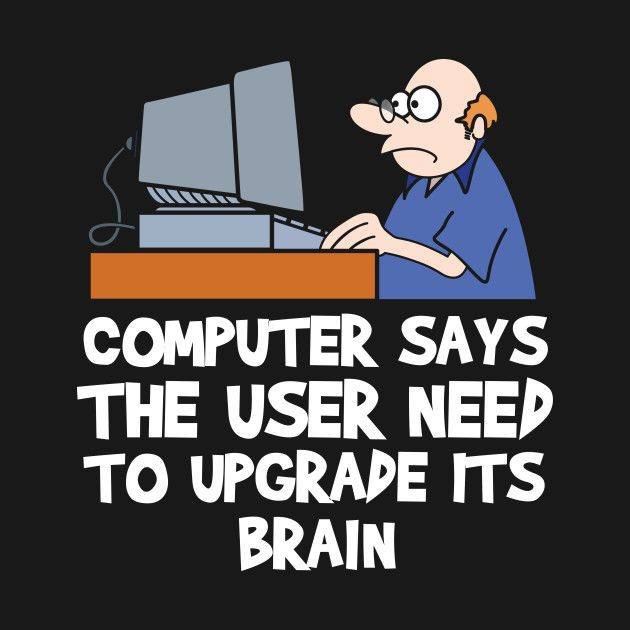Your Brain is a Supercomputer:
The human brain, often likened to a supercomputer, is a remarkable organ that performs tasks far beyond the capabilities of any machine. Though computers excel at processing data and executing complex calculations, the brain is a marvel of efficiency, adaptability, and intelligence, allowing us to perceive, reason, learn, and create. Comparing the brain to a supercomputer highlights both the similarities and differences between artificial and biological intelligence, revealing the incredible capabilities of human cognition.
The Brain’s Computational Power
At a glance, the brain may seem like just a mass of neural tissue, but beneath its surface lies a staggering level of complexity. The human brain contains around 86 billion neurons, each capable of forming thousands of connections with other neurons, creating trillions of synaptic pathways. This intricate network enables the brain to process vast amounts of information in parallel, managing everything from basic bodily functions to abstract thought.
Unlike modern computers that process information sequentially, the brain’s parallel processing allows it to handle multiple tasks at once. For instance, as you read this article, your brain is simultaneously interpreting visual information, accessing language centers, maintaining posture, and regulating vital systems like heartbeat and breathing—all without conscious effort.
Memory and Learning
One of the brain’s most remarkable features is its capacity for learning and memory. Supercomputers rely on databases and algorithms to store and retrieve data, but the brain continuously updates and reorganizes its knowledge through neuroplasticity. Each time we learn something new or encounter a novel experience, the brain strengthens or forms new connections, allowing for adaptation and growth throughout life.
The brain’s ability to generalize knowledge, make predictions, and apply past experiences to new situations is a level of cognitive flexibility that supercomputers cannot yet replicate. While machines may excel at memorizing large datasets, they lack the brain’s intuitive sense-making ability that allows humans to draw inferences and navigate ambiguous scenarios.
Efficiency and Energy Usage
Despite its immense capabilities, the human brain operates with remarkable efficiency. The brain uses roughly 20 watts of energy—about the same as a dim light bulb—while performing tasks that would require massive amounts of computational power in a supercomputer. In contrast, high-performance computers consume thousands of watts to run complex simulations and analyses, requiring specialized cooling systems to prevent overheating.
This efficiency stems from the brain’s biological design. Neurons communicate using electrochemical signals, transmitting information with remarkable speed and minimal energy. The brain’s ability to prioritize important tasks and filter irrelevant information ensures it operates effectively without overwhelming itself with unnecessary data.
The Power of Creativity and Emotion
Where supercomputers excel in raw data processing, the human brain shines in areas like creativity and emotion. These uniquely human faculties are not merely the result of data manipulation but arise from the brain’s ability to synthesize disparate pieces of information, form abstract connections, and generate original ideas. Artists, writers, scientists, and inventors tap into this creative power, pushing the boundaries of what’s possible in ways that algorithms and machines cannot yet emulate.
Similarly, emotions play a crucial role in decision-making and social interactions, providing a depth of experience that computers are far from achieving. Emotions influence everything from our memories to our perception of risk, guiding our decisions in ways that go beyond cold logic.
Limits of the Supercomputer Analogy
While it is tempting to compare the brain to a supercomputer, the analogy falls short in many ways. The brain is not simply a processor or a storage device—it is a dynamic, self-organizing system that continuously interacts with its environment. Its capacity for consciousness, subjective experience, and personal identity sets it apart from even the most advanced machines.
Moreover, the brain operates with a level of unpredictability and nuance that computers do not. While computers are bound by the strict logic of their programming, the brain is shaped by biology, emotions, and personal history. It can be influenced by factors like mood, fatigue, and external stimuli, leading to behaviors that are difficult to predict or replicate in machines.
The Future: Synergy Between Brain and Machine
Despite the limitations of comparing the brain to a supercomputer, advancements in technology are bringing these two worlds closer together. Developments in artificial intelligence (AI) and machine learning are creating machines that mimic certain aspects of human thought, and researchers are exploring brain-computer interfaces (BCIs) that allow direct communication between the brain and digital devices.
In the future, the synergy between human cognition and machine power may revolutionize industries, healthcare, and our understanding of intelligence. Yet, even as machines become more advanced, the unique qualities of the human brain—its creativity, emotional depth, and adaptability—will remain unparalleled.
The human brain may share some superficial similarities with a supercomputer, but it is so much more. It is a master of multitasking, a repository of memories, a source of creativity, and a hub for emotions. While machines may rival or surpass us in some areas of data processing and computation, the brain remains an unrivaled model of efficiency and ingenuity. The true power of the human brain lies not just in its ability to process information but in its capacity to make meaning from the world, continually learning, adapting, and creating in ways that transcend the capabilities of even the most advanced technology.
Thanks for reading 📚
MOÃSE




No comments yet
Be the first to share your thoughts!